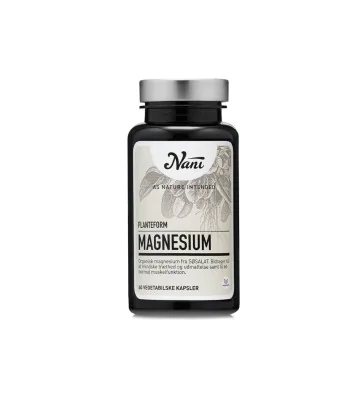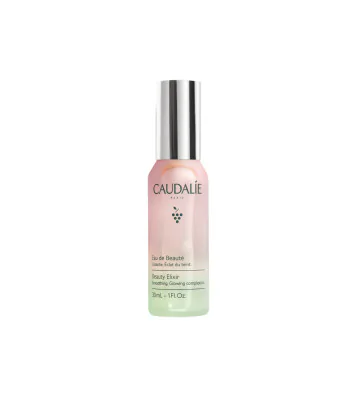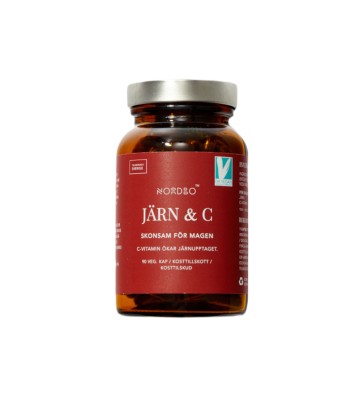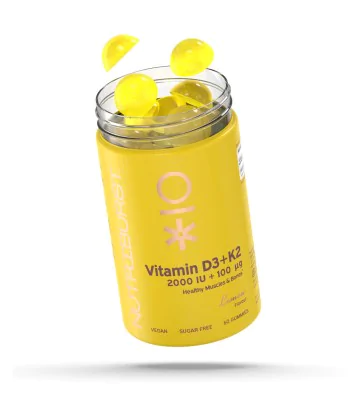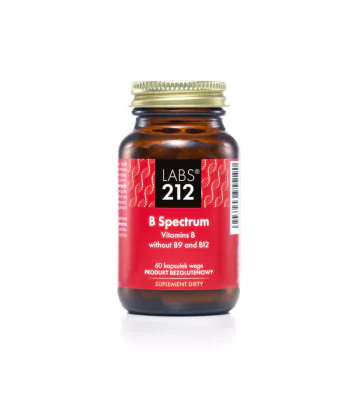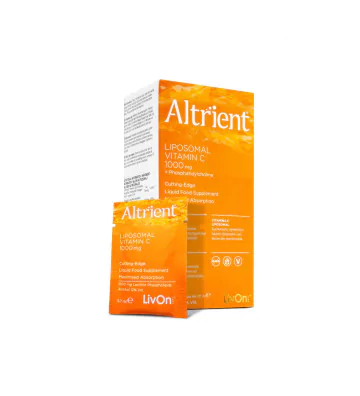
What dietary supplements to take after age 65? Learn about our recommendations
Table of contents
Our body can surprise in many different ways. It has restorative properties, but the regulatory mechanisms only work when the body has the right conditions to do so. Deficiencies, which occur for a variety of reasons, hinder the proper functioning of organs. Age is one of them. What vitamins should you take after the age of 65 to make sure your body functions properly? Not only the vitamins you are familiar with will be necessary.

Why are supplements after 65 so important?
As we age, the body changes dramatically. Not only on the outside, but especially on the inside. Vitamin deficiencies are one of the problems that many people over 65 face. Why? The reason, for example, is changes in metabolism - reduced absorption of nutrients in the digestive system affects deficiencies. But that's not all. At this age, you may also notice a smaller appetite, which makes balancing your diet not as easy as before. Add to the smaller amounts of food consumed and poorer absorption of nutrients the effect of certain medications on vitamin and mineral metabolism. Examples include diuretics used for cardiovascular disease, which cause potassium and magnesium to be depleted. Therefore, supplementation at this age is worth thinking about. What vitamins to take after age 65?

What vitamins to take after age 65? The ideal supplement for everyone is different
If you're wondering what vitamins to take after 65, you're probably seeing alarming deficiency symptoms in yourself. Perhaps it's general weakness, worse immunity, weak hair, gray complexion. Many symptoms can be caused by deficiencies, while others can be caused by illnesses, diseases or even poorly chosen medications. There are many reasons, so before you decide on the perfect supplement, think about what you really need. What effect do you want to achieve? Your doctor can help you with this, ordering the appropriate blood tests to see where the problem lies or directing you to the answer. Remember that everyone's need for vitamins and minerals will vary, depending on their lifestyle, health status or medications they are taking. That's why talking to your doctor is so important.

Vitamin and mineral requirements after age 65
The demand for minerals and vitamins changes with age. It is different in people over 65 than in younger people. The requirement also varies from the point of view of men and women. How do these values present themselves? [1]
- Vitamin A - 700 micrograms in women and 900 in men
- Vitamin E - 8 mg in women and 10 in men
- Vitamin D - 15 micrograms in women and men
- Vitamin C - 75 milligrams in women and 90 in men
- Vitamin K - 90 micrograms in women and 120 in men
- Vitamin B1 - 1.1 milligrams in women and 1.3 in men
- Vitamin B2 - 1.1 milligrams in women and 1.3 in men
- Vitamin B6 - 1.5 milligrams in women and 1.7 in men
- Vitamin B12 - 2.4 micrograms in women and men
- Folic acid - 400 micrograms in women and men
- Calcium - 1,300 milligrams in women and men
- Iron - 10 milligrams in women and men
- Magnesium - 320 milligrams in women and 420 in men
- Sodium - 1300 milligrams in women and men
- Potassium - 4700 milligrams in women and men
- Iodine - 150 milligrams in women and men
- Zinc - 8 milligrams in women and 10 in men

What vitamins to take after the age of 65?
Proper functioning of the body is only possible when it experiences complete harmony. For this, the presence of all 13 vitamins is necessary. Therefore, to know the exact vitamin requirements of your body, the blood tests we mentioned earlier are necessary. However, some of them are especially important after the age of 65. These are primarily the ADEK vitamins, vitamin B and vitamin C. A supplement with these particular vitamins will be suitable for most seniors. Why exactly are these vitamins so important?
- Vitamin A supplement not only for healthy eyes! It is also crucial for the body's immunity. In addition, it supports the metabolization of iron.
- Vitamin D - extremely important for bone health, as well as immunity. For seniors, it is also important for mental health - vitamin D can reduce the risk of depression in seniors [2].
- Vitamin E - a supplement with a powerful antioxidant effect that does more than just a lot of good for our skin. Antioxidant properties work to slow down the aging process of all cells in the body. Protection against oxidative stress is also important for reducing the risk of cancer.
- Vitamin K - similar to vitamin D supplement, vitamin K is important for bone health and protection against osteoporosis. Vitamin K supplement, which is most often combined precisely with vitamin D. Its dietary deficiencies are not common, but can be caused by absorption problems that occur just after the age of 65.
- B vitamins - first and foremost is vitamin B12, which is essential for the proper functioning of the nervous system, as well as the production of red blood cells. All B vitamins are extremely important for the functioning of all systems in the body. So what kind of supplement? Vitamin B complex may prove to be the best option.
- Vitamin C - another powerful antioxidant. Important for immunity, protection against oxidative stress, as well as collagen production, which supports skin and joint health.
Is there an ideal set of vitamins for seniors? The ranking should open with a formula that contains all of these vitamins, but also minerals that are essential for healthy functioning.

Minerals after the age of 65
As with vitamins, all minerals are essential for the body to function properly. 22 minerals must be either in your diet or in supplements. However, some, from the point of view of a person over 65, are especially important.
- Magnesium - well known for its properties regulating the nervous system. However, magnesium additionally regulates blood pressure and reduces the risk of cardiovascular disease.
- Iron - people over the age of 65 can suffer from anemia, due to, among other things, a reduced food supply or poorer absorption. Therefore, iron supplementation is often recommended as prevention of anemia.
- Potassium - extremely important for regulating blood pressure and supporting the proper functioning of the cardiovascular system. Potassium deficiency can manifest as cardiac dysfunction.
- Calcium - due to the risk of osteoporosis, calcium supplementation is recommended for people over 65. However, it is also important for the endocrine or nervous system. Calcium is also important for faster wound healing.

Vitamins and minerals for immunity after 65 years of age
The immune system is affected by many factors, not just the familiar vitamin C and D. The overall well-being of the body, lack of stress, sleep, proper diet, regular physical activity - these also have a not inconsiderable impact on reducing the risk of the appearance of diseases or worse. Remember, too, that immunity is also influenced by the health of the gut, where 80% of all immune cells reside. Therefore, in addition to vitamin supplementation, think about probiotics and prebiotics. Especially since the risk of gut problems, such as constipation, bloating or the aforementioned metabolic disorders, increases after age 65.

Vitamins and minerals for good memory after 65
A properly working brain and good memory is a state that many people over 65 want to achieve. This is influenced by many factors, lifestyle, diet, sleep, but also supplementation. For brain health, B vitamins are extremely important, especially vitamin B12 and folic acid. However, we must not forget about polyunsaturated fats, namely Omega-3 and Omega-6, which are of considerable importance for brain health. Interestingly, there are studies that indicate that Omega-3 supplementation can have a positive effect on reducing the risk of Alzheimer's disease [3].

Vitamins and minerals for good eyesight after age 65
Around the age of 50, there is a deterioration of eyesight, which is caused by the body's natural aging, but also by poorer pressure regulation or lifestyle. After age 65, some people experience additional problems such as glaucoma or cataracts, which are diseases caused by clouding of the lens of the eye and high pressure inside the eyeball. Adequate supplementation can support eye health, protecting against disease and vision deterioration. This is, of course, vitamin A, lutein, zeaxanthin, but also vitamin E, C and A. Antioxidants protect not only against diseases of civilization. They also have a positive effect on macular health and protect against retinal degeneration.

Vitamins and minerals for healthy bones and joints after age 65
People over 65 may notice many changes in their bodies - including poorer joint function. Added to this is bone fragility, which is the real bane of seniors. However, osteoporosis can be counteracted. Here it is extremely important to have an adequate supply of calcium and vitamin D, which increase bone density - this naturally decreases with age. However, it is not only these vitamins and minerals that take care of the health of the skeletal system. Here, of course, we should mention collagen, which is now supplemented mainly for healthy skin. However, it also takes care of cartilage, joints, tendons and, of course, bones. That is why it is an essential supplement for people over 65 who want to take care of their mobility for as long as possible.

Supplements for lowering cholesterol
High cholesterol can be caused by an inadequate diet, lack of physical activity or use of stimulants. Therefore, lowering it requires holistic action. Supplements such as Omega-3 fatty acids, vitamin E, C, B12, but also chromium or monacolin K can help with this. It is also worth looking at supplements with artichoke extract, which aids digestion, supports liver health and maintains normal cholesterol levels.
Is that all there is to it? In fact, supplementation should depend on your well-being, associated diseases, emerging conditions and lifestyle. What support products you decide on can also be consulted with your doctor. The better you think about protecting your health, the better results you can expect.
Sources


